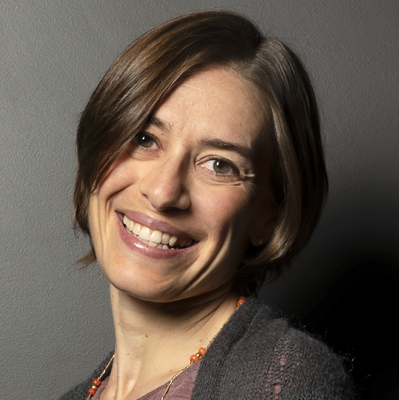 Elisa Palazzi is a professor of climate science at the Department of Physics, University of Turin, and is affiliated with the Institute of Atmospheric Sciences and Climate of the Italian National Research Council. She works on the study of the climate system and Earth-System processes, with a focus on the current and expected impacts of rising temperatures in mountain regions. She has experience in science dissemination through public speeches at conferences, festival, schools and participation in TV and radio programs. She wrote two books and was author and presenter of a climate Podcast.
Elisa Palazzi is a professor of climate science at the Department of Physics, University of Turin, and is affiliated with the Institute of Atmospheric Sciences and Climate of the Italian National Research Council. She works on the study of the climate system and Earth-System processes, with a focus on the current and expected impacts of rising temperatures in mountain regions. She has experience in science dissemination through public speeches at conferences, festival, schools and participation in TV and radio programs. She wrote two books and was author and presenter of a climate Podcast.
She is CICAP’s emeritus member.
Abstract
Why do we not take the climate crisis seriously?
The year 2023, the hottest in global temperature data records going back to 1850, marks the first time on record that every day within a year has exceeded 1°C above the 1850-1900 pre-industrial level. Close to 50% of days were more than 1.5°C warmer then the 1850-1900 level, and two days in November were, for the first time, more than 2°C warmer. Annual average air temperatures in 2023 were the warmest on record, or close to the warmest, over sizeable parts of all ocean basins. Each month from June to December in 2023 was warmer than the corresponding month in any previous year. July and August 2023 were the warmest two months on record, and so on and so forth. 2023 is part of a global temperature trend that began about 100-150 years ago and has accelerated since about the middle of the last century. All the collected data all around the globe show the same evidence, and 99 percent of the climate science community agrees that human actions, especially greenhouse gas emissions from burning of fossil-fuels, are the main driver of recent climate change.
Despite the robustness of the climate science and of its data, a significant gap persists between the scientific consensus on the climate crisis and public perception and action. This talk seeks to explore some of the layers of this disconnection at different levels (for the individual, to the community, to the governmental level), beginning with an acknowledgment of the overwhelming scientific evidence supporting climate change.
